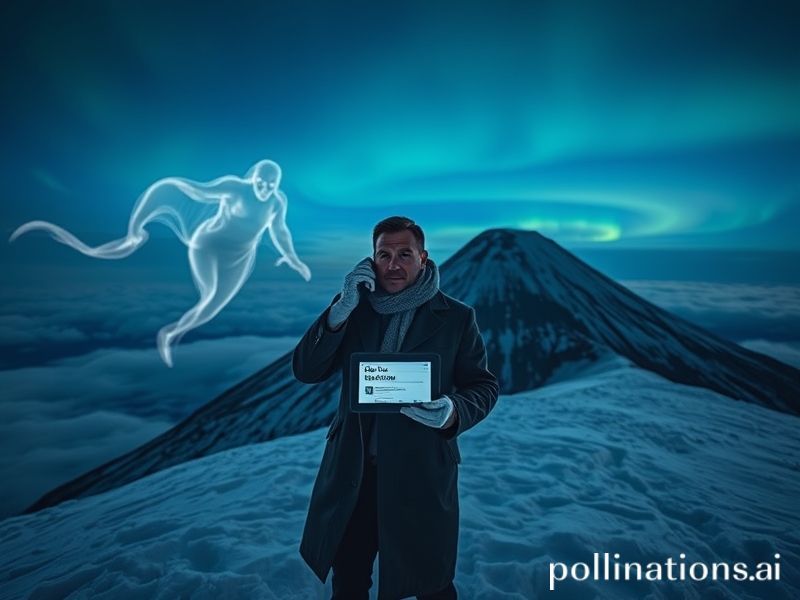Ghost of Yōtei: How One Glitchy Samurai Became the World’s Shared Punchline
Ghost of Yōtei Reviews: When a Japanese Game’s Spectral Bugs Become a Global Morality Play
By the time the sun rose over Helsinki, the Finnish speed-running collective “Perkele64” had already clipped through three walls and discovered that the titular ghost in Ghost of Yōtei was, in fact, an unpaid intern’s placeholder texture accidentally left in the final build. By dusk in São Paulo, Brazilian modders had replaced the spectral samurai with a dancing capybara wearing a tiny jester hat. Twenty-four hours later, a VC-backed start-up in Lagos was selling NFTs of the capybara’s hat. Somewhere in between, a junior producer at the Tokyo studio that once called the game its “soul” updated their LinkedIn to “open to new opportunities.”
Welcome to the international afterlife of Ghost of Yōtei, the open-world Edo-period fever dream that launched last month with the marketing tagline “Fear is a Mountain You Climb Alone.” Turns out the mountain was mostly asset flips and the climbing was done by unpaid QA testers who evidently gave up halfway. Critics from Kyoto to Kalamazoo have panned it; Metacritic’s global average hovers somewhere between “mild food poisoning” and “stepping on an upturned plug.” Yet the saga has transcended mere bad reviews to become a darkly comic case study in late-capitalist entropy—proof that in 2024 a buggy videogame can still unite the planet in shared schadenfreude.
The studio, whose name translates roughly to “Moonlight Excellence,” spent six years promising players a “haunting meditation on loss.” What they delivered was a protagonist who occasionally forgets she has knees, NPCs whose dialogue trees loop like broken supermarket playlists, and, infamously, a ghost that stalks you while hovering three feet to the left of its own body. Speed-runners adore it; everyone else contemplates the heat death of the medium. “It’s like watching kabuki performed by crash-test dummies,” wrote Le Monde’s gaming editor, presumably while sipping something expensive and regrettable.
But the real fun starts when you zoom out. In Seoul, disgruntled fans crowdfunded a billboard outside the developer’s publisher depicting the ghost holding a sign: “Will Work for Collision Detection.” In New York, a hedge fund shorted the publisher’s stock so aggressively that the Securities and Exchange Commission briefly mistook the ticker for a crypto rug-pull. Meanwhile, the BBC ran a segment titled “Digital Colonialism and the Samurai Skin-Walker,” which somehow blamed Brexit. Humanity, it seems, cannot agree on carbon budgets or vaccine patents, but we can synchronize our global contempt for a phantom limb samurai.
The broader significance? Pundits are calling it the first post-national flop: a product so universally disappointing it erased borders faster than cheap airfare. Diplomats at the UN actually cited the game’s launch debacle as evidence that multilateral cooperation is possible—“Look,” joked the delegate from Singapore, “even the Russians and the Ukrainians are roasting the same boss fight.” Dark humor, yes, but in a year when half the planet can’t decide if democracy is worth the shipping costs, any consensus feels miraculous—even one forged by shared incredulity at a haunted texture file.
And yet, in the grand tradition of human resilience—or perhaps our pathological inability to learn—the game is selling. Not well, mind you, but enough to spawn a ten-hour documentary on YouTube narrated entirely by AI-generated David Attenborough. (“And here we observe the rare day-one patch in its natural habitat…”) Viewers from Toronto to Tashkent tune in nightly, united by the soothing balm of collective mockery. The publisher, ever the opportunist, has announced a “Ghosts of Regret” DLC, rumored to be a 4K texture of the intern’s resignation letter.
As the digital dust settles, the ghost of Yōtei lingers—not as a fearsome yokai, but as a cautionary specter haunting every Zoom call where executives say “minimum viable product” with a straight face. It’s the ghost of over-promise, the ghost of crunch, the ghost of a market that rewards trailers more than truth. And because this is 2024, it’s also probably being auctioned as a limited-edition hologram on the dark web. May we all haunt so lucratively.







